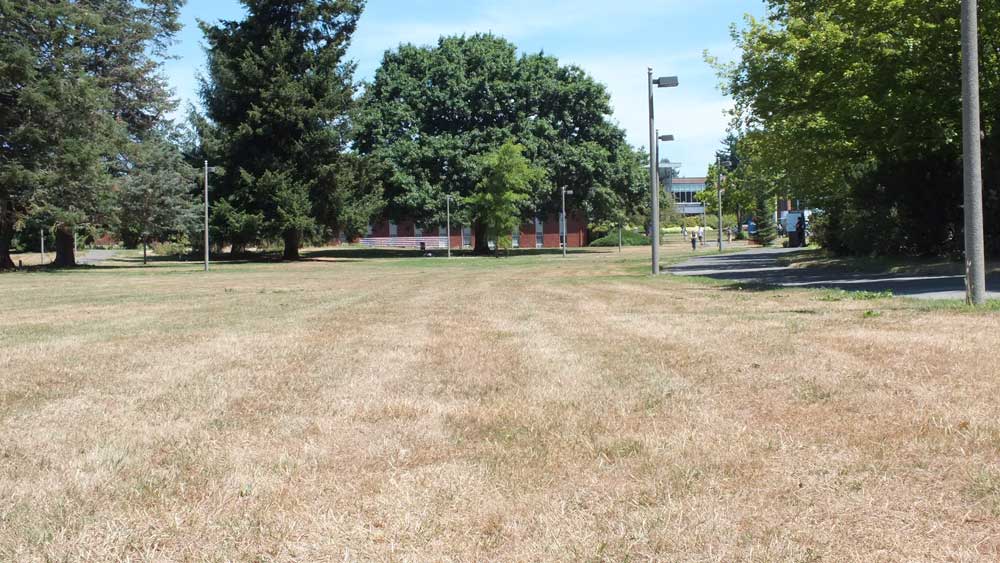In times of drought, being green can mean going brown

Clark’s efforts to conserve water during a statewide drought have led to the grass looking a little more parched than usual.
This summer, visitors to the main campus may have noticed a change in its normally lush landscape. The grass, which usually blankets the campus in emerald green, has been looking a little, well, thirsty of late. Dry. Brown. Dead, possibly?
Far from it, assures Clark College Director of Facilities Services Tim Petta. He explains that the college is simply responding to Washington Governor Jay Inslee’s May 15 declaration of a statewide drought.
“Clark College is doing its part to reduce irrigation use to the least amount of water possible during this difficult water resource time,” says Petta. “We are trying different shortened watering schedules to use the least amount of water, while still keeping the grass alive.”
According to the Washington Department of Ecology, almost 80 percent of the state’s rivers and streams are running at below-normal levels–and 38 percent of them at record lows. Meanwhile, mountain snowpacks are down to 16 percent of their normal levels, and the Washington Department of Agriculture is projecting a $1.2 billion crop loss this year as a result of the drought.
While the college does not rely on a municipal source for irrigation water, it does pull that water from an underground aquifer that is also used to provide municipal water locally. So the college decided to do what it could to slow its drain on a community resource, says Petta.
The irrigation changes should not affect the college’s landmark arboretum, which has earned the college Tree Campus USA status from the Arbor Day Foundation for five years in a row. Trees’ deep roots can withstand drought better than smaller, more delicate plants.
Nor will the changes prevent the college’s beloved Andersen Fountain from flowing again in a few weeks once scheduled repairs have been made to it. The fountain operates on a “closed loop” system that recycles the water, meaning it can continue to surprise guests and delight children without affecting the state’s limited water reserves.












